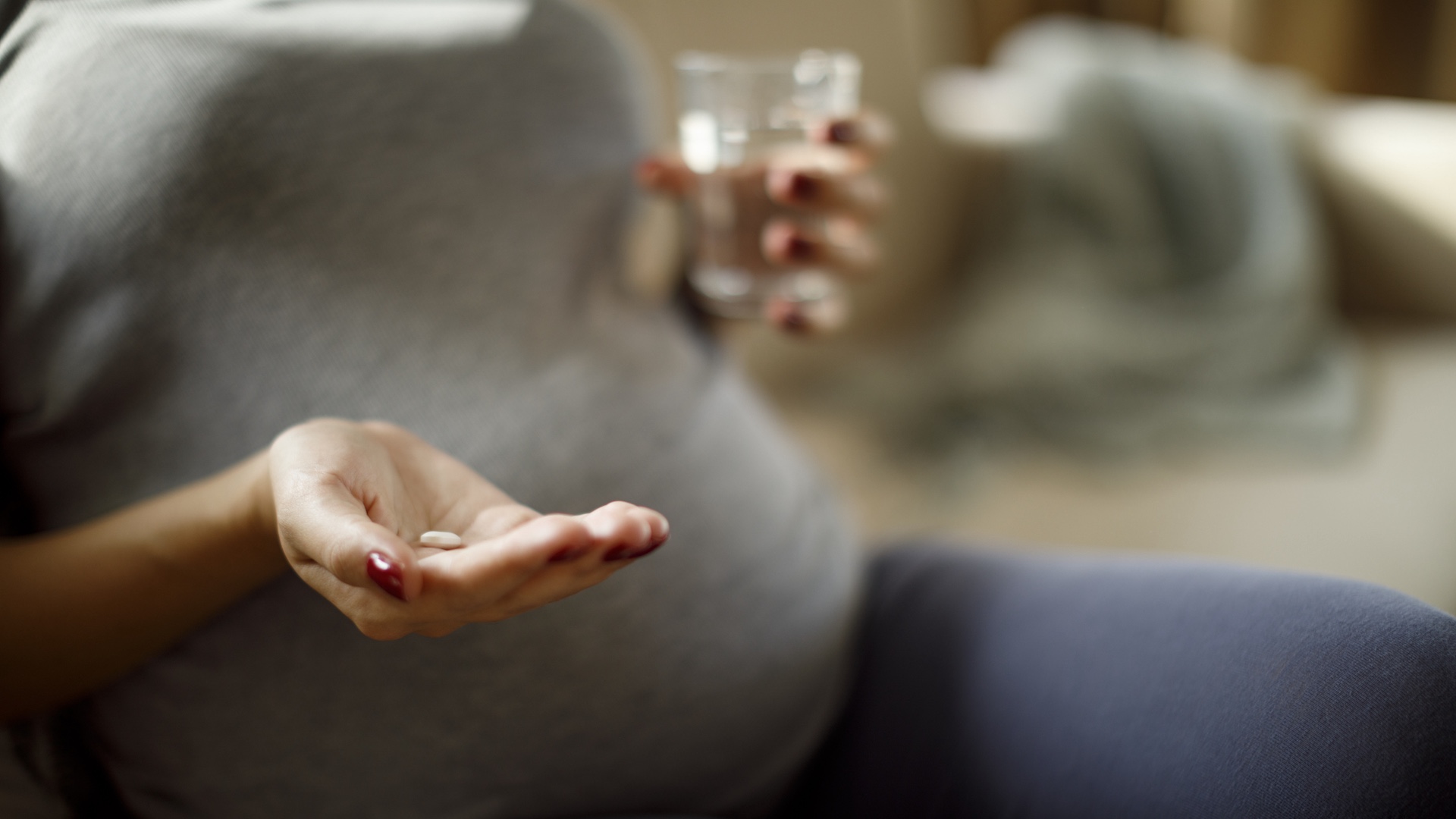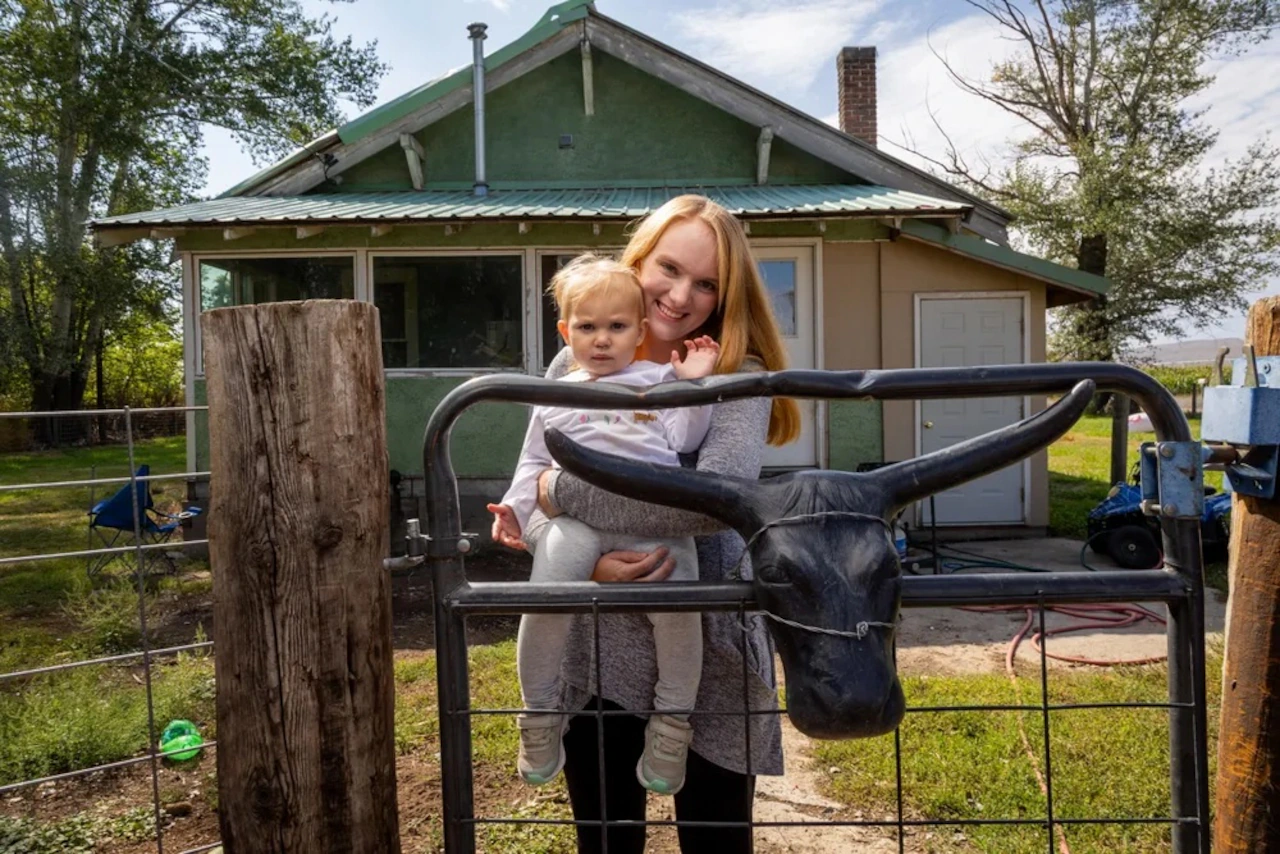By Theresa Sullivan Barger
Copyright livescience

Skip to main content
Close main menu
Live Science
Sign up to our newsletter
View Profile
Search Live Science
Planet Earth
Archaeology
Physics & Math
Human Behavior
Science news
Life’s Little Mysteries
Science quizzes
Newsletters
Story archive
Man regains vision by tooth to eye implant
5,000-year-old stone tomb in Spain
Abandoning daylight saving time
JWST discovers possible black hole star
Million-year-old skull from China rewrites human origins
Don’t miss these
Medicine & Drugs
Thimerosal carries no health risks and is almost never used anyway. So why are anti-vaxxers obsessed with it?
Fertility, Pregnancy & Birth
FDA panel has cast doubt on whether antidepressants are safe in pregnancy. Here’s what the science actually says.
Medicine & Drugs
Prominent medical journal refuses RFK’s call to retract a vaccine study
Medicine & Drugs
RFK’s handpicked advisers are coming for the childhood vaccine schedule. Here’s what to know.
Medicine & Drugs
Unpacking RFK Jr.’s (many) false claims about COVID vaccines
Medicine & Drugs
RFK Jr. wants to overhaul the country’s ‘vaccine court.’ Here’s what stands in his way.
Medicine & Drugs
CDC committee votes to change measles vaccine guidance for young children
Coronavirus
COVID-19 vaccines for kids are mired in uncertainty amid conflicting federal guidance
Fertility, Pregnancy & Birth
Acne drug Accutane may restore sperm production in infertile men, early study hints
Planned C-sections linked to increased risk of childhood leukemia in study: What to know
Fertility, Pregnancy & Birth
Dangers of falling birth rates in the US have been ‘dramatically overstated,’ experts say
Fertility, Pregnancy & Birth
Even brief exposure to air pollution can push the placenta into an inflammatory state, lab study suggests
Formaldehyde-free hair-straightening products may still threaten health, concerning study finds
Medicine & Drugs
You may not really be allergic to penicillin. Here’s how to find out if you are.
Fertility, Pregnancy & Birth
Metformin may prevent severe morning sickness
Is acetaminophen safe in pregnancy? Here’s what the science says.
Theresa Sullivan Barger
26 September 2025
In a recent announcement, President Trump warned that the active ingredient in Tylenol may be linked to autism. Here’s what the data really shows.
When you purchase through links on our site, we may earn an affiliate commission. Here’s how it works.
President Trump recently raised concerns about the use of acetaminophen during pregnancy and the risks of autism, but major medical organizations have rebutted that assertion.
(Image credit: damircudic/Getty Images)
On Monday (Sept. 22), President Donald Trump warned pregnant people to avoid acetaminophen, the active ingredient in Tylenol, because of a controversial study by a Harvard dean and others. In response, several health organizations — including the American College of Obstetricians and Gynecologists (ACOG), the Society of Obstetrics and Gynecology of Canada, the American Academy of Pediatrics (AAP) and the World Health Organization (WHO) — have issued statements rebutting Trump’s assertion that Tylenol use in pregnancy “can be associated with an increased risk of autism.”
Trump also advised parents not to give Tylenol to babies, prompting the AAP to issue a statement saying, “decades of research have found that acetaminophen is safe for children when administered as recommended. Misleading claims that the medicine is not safe and is linked to increased rates of autism send a confusing, dangerous message to parents and expectant parents.”
So, where did the notion that Tylenol causes autism come from, and is there any evidence for the claim? Here are some research-backed answers to common questions about acetaminophen use in pregnancy.
You may like
Thimerosal carries no health risks and is almost never used anyway. So why are anti-vaxxers obsessed with it?
FDA panel has cast doubt on whether antidepressants are safe in pregnancy. Here’s what the science actually says.
Prominent medical journal refuses RFK’s call to retract a vaccine study
Have any studies found a causal link between acetaminophen use in pregnancy and autism?
No, according to the WHO, ACOG and AAP. No studies have shown that acetaminophen causes neurodevelopmental issues.
While health experts advocate limiting acetaminophen use in pregnancy to only when necessary, some of the most reassuring data comes from a 2022 study in the journal The Association for Child and Adolescent Mental Health and a 2024 JAMA study that looked at nearly 2.5 million Swedish children born between 1995 and 2019. Both found no causal link.
The Swedish study found a marginal statistical association between a pregnant person’s use of acetaminophen and an increased risk of autism and attention-deficit hyperactivity disorder (ADHD). But that association disappeared once siblings in the same family whose mothers either did or did not take acetaminophen were compared, lead author Brian Lee, an epidemiologist at Drexel University’s Dornsife School of Public Health, wrote in an email to Live Science.
That makes it unlikely that acetaminophen causes autism. Rather, there are other factors, or confounders, that both make people more likely to take the pain reliever during pregnancy and more likely to have a child with autism. “Association is not causation,” Lee said.
What’s likely behind the association is that people who take acetaminophen are doing so to treat a medical condition such as an infection, fever, headache or migraine, and “all of these factors have been found to be associated with risk of autism in the child,” Lee said.
What’s more, scientists know there’s a large genetic component to autism, and women with genes that raise the risk of neurodevelopmental disorders tend to report more pregnancy pain and use of acetaminophen. That same genetic risk of a neurodevelopmental disorder is passed on to their child, Lee added.
Nevertheless, on Sept. 22, the U.S. Food and Drug Administration announced that it will issue a physician notice and initiate a safety label change for acetaminophen, while the U.S. Department of Health and Human Services (HHS) will launch a public service campaign, HHS announced.
In a recent news briefing, Trump linked acetaminophen use during pregnancy and autism, and urged pregnant women. The link is based on flawed research, one expert told Live Science. (Image credit: Bloomberg/Getty Images)
If data doesn’t show that acetaminophen use during pregnancy causes autism, where did that idea originate?
As evidence for their claims, Trump administration officials cited an August analysis co-authored by epidemiologist Dr. Andrea Baccarelli, dean of Harvard’s T.H. Chan School of Public Health, that combined data from many studies on acetaminophen and neurodevelopmental disorders.
The New York Times reported that Baccarelli was paid $150,000 as an expert witness for plaintiffs in lawsuits against Tylenol makers — testimony that was ultimately thrown out for being scientifically unsound. Lee, for his part, is very skeptical of the study.
“Unfortunately, in this instance, the review of the paper was done so blatantly poorly that one has to question the objectivity of the authors,” Lee wrote in an email.
Baccarelli’s work “cherry-picked and misrepresented the literature,” underweighting studies that accounted for issues like genetics or maternal health that may raise the risk of autism, while overweighting studies that did not account for those factors, Lee explained.
The flaws in Baccarelli’s study are similar to those that bedeviled early work that suggested drinking coffee caused lung cancer. This was a problem because people who smoke tend to drink a lot of coffee, he said. If you did a study that did not adjust for smoking, you would conclude that coffee causes lung cancer, when it’s actually the smoking that does.
“The exact same thing is going on here,” Lee said.
What is acetaminophen used to treat in pregnancy?
Acetaminophen is one of the most commonly used medications during pregnancy around the world, according to Nature. Not only can acetaminophen benefit the pregnant person by reducing pain and fever, according to Nature, but it may also prevent negative health consequences for the fetus that might otherwise arise due to maternal symptoms.
Are there any safe alternatives to acetaminophen for pregnant people?
There are very few alternatives to acetaminophen for pain relief and treatment of fevers or headaches during pregnancy. That’s because many would-be alternatives — including nonsteroidal anti-inflammatory (NSAIDs) drugs, such as ibuprofen (Advil), naproxen (Aleve) and aspirin — come with usage restrictions or contraindications, according to ACOG. Acetaminophen is recommended for prudent use following consultation with a doctor and is readily available to most people who need it.
If acetaminophen doesn’t work, ibuprofen and naproxen can be taken for migraines in the second trimester only and for no more than 48 hours at a time, ACOG says. Taking NSAIDs in the third trimester may lead to birth defects, according to ACOG.
Low-dose aspirin has been used in special cases, most commonly to reduce the risk of or delay the onset of preeclampsia, according to ACOG clinical guidelines. Low-dose aspirin has also been used to treat recurrent miscarriage and fetal growth restriction, according to a 2021 study in the journal Human Reproduction Update.
What are the dangers of fever if left untreated during fetal development?
A systematic review and meta-analysis in the journal Molecular Autism reviewed 10 studies involving 10,304 children with neurodevelopmental disorders such as autism, ADHD and intellectual disability and found that fevers during pregnancy were tied to an increased risk of neurodevelopmental disorders in children. One relatively small study found that when pregnant people with influenza have a fever, their odds of having a child with autism were lower if they took a fever reducer versus if they didn’t. This hints that an underlying issue, such as fever or infection, may be a factor in the increased risk for neurodevelopmental disorders in children.
Sign up for the Live Science daily newsletter now
Get the world’s most fascinating discoveries delivered straight to your inbox.
Contact me with news and offers from other Future brandsReceive email from us on behalf of our trusted partners or sponsorsBy submitting your information you agree to the Terms & Conditions and Privacy Policy and are aged 16 or over.
Theresa Sullivan Barger
Live Science Contributor
Theresa Sullivan Barger is an award-winning freelance journalist who covers health, science, and the environment. Her stories have appeared in The New York Times, The Boston Globe, Los Angeles Times, AARP, CURE, Discover, Family Circle, Health Central, Next Avenue, IEEE Spectrum, Connecticut Magazine, CT Health Investigative Team, and more. Based in central Connecticut, she is an advanced master gardener who is passionate about gardening for wildlife, especially pollinators and songbirds.
Thimerosal carries no health risks and is almost never used anyway. So why are anti-vaxxers obsessed with it?
FDA panel has cast doubt on whether antidepressants are safe in pregnancy. Here’s what the science actually says.
Prominent medical journal refuses RFK’s call to retract a vaccine study
RFK’s handpicked advisers are coming for the childhood vaccine schedule. Here’s what to know.
Unpacking RFK Jr.’s (many) false claims about COVID vaccines
RFK Jr. wants to overhaul the country’s ‘vaccine court.’ Here’s what stands in his way.
Latest in Autism
‘Butterfly effect’ may explain some genetic causes of autism
Rates of autism diagnosis in children are at an all time high, CDC report suggests
Unpicking the Autism Puzzle by Linking Empathy to Reward (Op-Ed)
Study of Motion Sheds New Light on Autism and The Brain
The Autism-Epilepsy Connection (Op-Ed)
Hospitals Adapting for Adults With Autism (Op-Ed)
Latest in News
Is acetaminophen safe in pregnancy? Here’s what the science says.
Mysterious cosmic explosion can’t be explained, scientists say
Amazon rainforest trees are resisting climate change by getting fatter from CO2 in the atmosphere
Scientists unveil world’s first quantum computer built with regular silicon chips
‘If there is a space race, China’s already winning it’: NASA unlikely to bring Mars samples back to Earth before China does, experts say
‘Gold coins started appearing one after another’: 1,400-year-old hoard with money and jewelry unearthed near Sea of Galilee
LATEST ARTICLES
Mysterious cosmic explosion can’t be explained, scientists say
Our reviewer’s ‘go-to’ sports watch has just dropped to its lowest-ever price
Scientists are unraveling the link between pollution and psoriasis
‘If there is a space race, China’s already winning it’: NASA unlikely to bring Mars samples back to Earth before China does, experts say
Amazon rainforest trees are resisting climate change by getting fatter from CO2 in the atmosphere
Live Science is part of Future US Inc, an international media group and leading digital publisher. Visit our corporate site.
Contact Future’s experts
Terms and conditions
Privacy policy
Cookies policy
Accessibility Statement
Advertise with us
Web notifications
Editorial standards
How to pitch a story to us
Future US, Inc. Full 7th Floor, 130 West 42nd Street,
Please login or signup to comment
Please wait…



